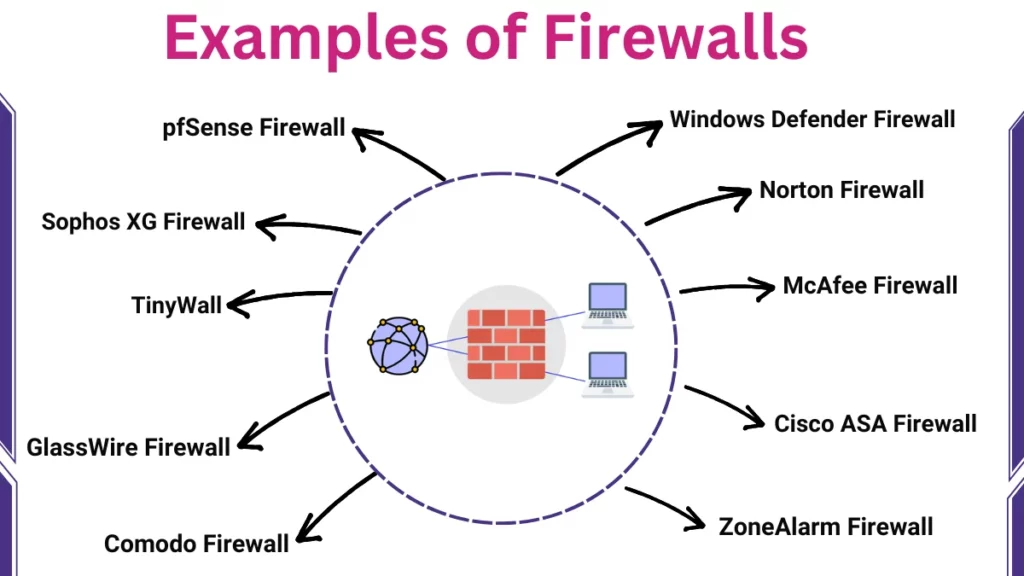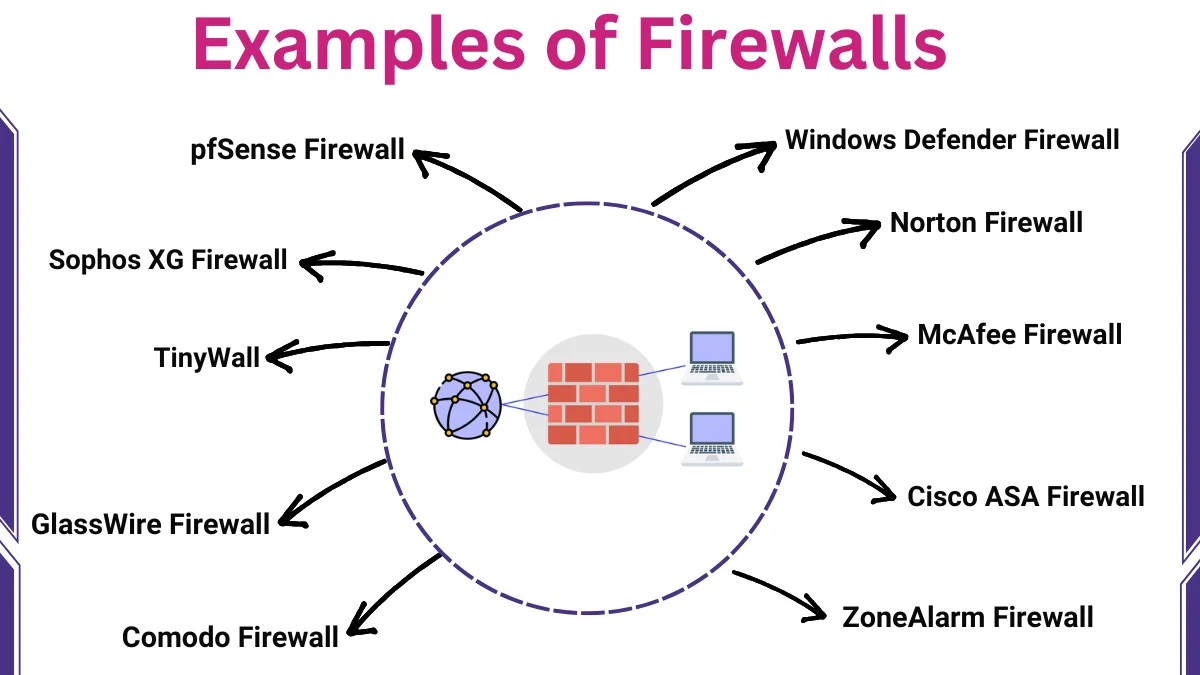A firewall is a security system that protects your computer and network. It checks the data that comes in or goes out and blocks it if it is dangerous. Firewalls also stop hackers, viruses, and malware. Some firewalls are free, and some are paid.

Examples of Firewalls in Real Life
These are some common examples of firewalls:
1. Windows Defender Firewall
This firewall comes with the Windows operating system. You don’t need to install it. It starts working automatically. It checks which programs can send or receive data. It blocks harmful connections. It also gives notifications if a new app wants to connect to the internet. This firewall is good for home users.
2. Norton Firewall
Norton is a famous antivirus company. It also gives a strong firewall. It blocks dangerous websites. It stops hackers from entering your system. It also protects your private information. Norton gives alerts if it finds something wrong. Many people trust Norton because it updates regularly and gives full protection.
3. McAfee Firewall
McAfee also provides both antivirus and a firewall. It checks all incoming and outgoing network traffic. It blocks suspicious activity. It warns the user about threats. It also gives real-time protection. Many offices and home users use McAfee for better security.
4. Cisco ASA Firewall
Cisco ASA is used in large companies. It is a hardware firewall. It gives very strong security. It protects big networks. It controls data flow and stops attacks. It also supports VPNs. Network administrators use it to protect their business data.
5. ZoneAlarm Firewall
ZoneAlarm is a free firewall. It is simple and easy to use. It gives basic protection. It blocks unknown programs from accessing the internet. It alerts users about suspicious activity. This firewall is good for students and personal computer users.
6. pfSense Firewall
pfSense is an open-source firewall. It is free to download. It works best on routers and servers. It has many security features. You can use it at home or in an office. It is good for people who know networking. It is powerful and flexible.
7. Sophos XG Firewall
Sophos gives strong protection to schools, colleges, and businesses. It stops viruses, malware, and ransomware. It checks all web traffic. It helps manage internet use. It also protects emails and cloud services. IT professionals prefer using Sophos for full control and safety.
8. TinyWall
TinyWall is a small and fast firewall. It works with the Windows Firewall. It blocks dangerous apps from using the internet. It also hides your system from hackers. It uses less memory, so it runs smoothly on any computer. It is great for students.
9. GlassWire Firewall
GlassWire is a smart firewall. It also shows how your internet is being used. You can see which app is using how much data. It gives alerts for unknown activity. Its design is simple and user-friendly. People who like visual tools enjoy using GlassWire.
10. Comodo Firewall
Comodo is a free and powerful firewall. It blocks viruses, malware, and hackers. It checks all programs before they run. It uses “default deny” technology. This means it blocks unknown apps unless the user allows them. It is a great option for both beginners and advanced users.

